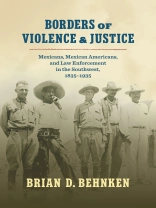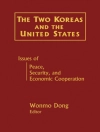Brian Behnken offers a sweeping examination of the interactions between Mexican-origin people and law enforcement—both legally codified police agencies and extralegal justice—across the U.S. Southwest (especially Arizona, California, New Mexico, and Texas) from the 1830s to the 1930s. Representing a broad, colonial regime, police agencies and extralegal groups policed and controlled Mexican-origin people to maintain state and racial power in the region, treating Mexicans and Mexican Americans as a “foreign” population that they deemed suspect and undesirable. White Americans justified these perceptions and the acts of violence that they spawned with racist assumptions about the criminality of Mexican-origin people, but Behnken details the many ways Mexicans and Mexican Americans responded to violence, including the formation of self-defense groups and advocacy organizations. Others became police officers, vowing to protect Mexican-origin people from within the ranks of law enforcement. Mexican Americans also pushed state and territorial governments to professionalize law enforcement to halt abuse.
The long history of the border region between the United States and Mexico has been one marked by periodic violence, but Behnken shows us in unsparing detail how Mexicans and Mexican Americans refused to stand idly by in the face of relentless assault.
عن المؤلف
Brian Behnken is professor of history at Iowa State University. He also holds affiliate faculty positions in the U.S. Latino/a Studies and African and African American Studies Programs. He is the author of Fighting Their Own Battles: Mexican Americans, African Americans, and the Struggle for Civil Rights in Texas and the editor of Civil Rights and Beyond: African American and Latino/a Activism in the Twentieth-Century United States.












